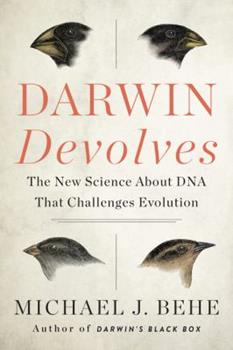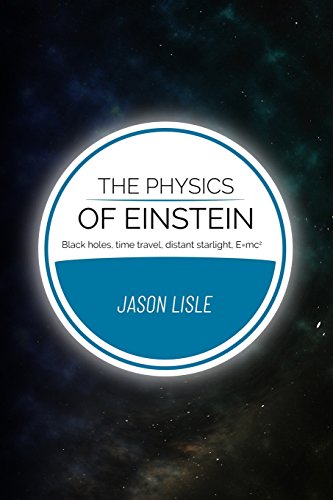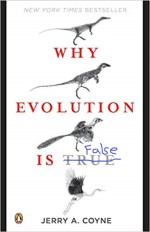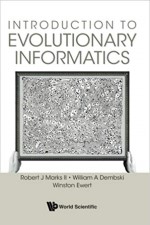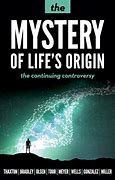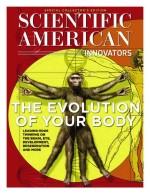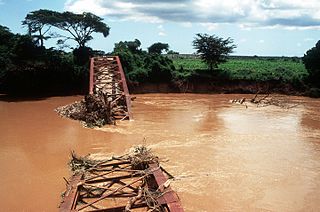
Ahhh... Natural Selection (henceforth NS). What an amazing process! It's the bridge to turn single-celled organisms into multiple celled organisms, it can produce sexual reproduction from asexual reproduction, cause fish to invade land, wolves to invade oceans, create wings and immune systems. It's so powerful, it can cause two plants evolving in deserts located on separate continents to appear almost identical through a wonderful process called convergent evolution. In fact convergent evolution is so prevalent, how can one not marvel at how powerful Natural Selection is??
Except that it isn't....
The Truth about Natural Selection
First off, for those new to evolution I need to point out the fact that NS does not generate anything new, it only filters what's existing. See NS Q&A here, NS topics here, or this article.
Another important point to understand is that Genetic Drift has quite a bit of influence on population genetics, which essentially adds a great deal of randomness to the process.
Things NS can't 'see'??
As I studied Natural Selection more, I started seeing comments indicating that Natural Selection:
- Isn't effective enough to "see" small beneficial mutations (meaning not keep them)
- Isn't effective enough to "see" small deleterious mutations (meaning not remove them)
Consider this quote from Dr. Robert Carter in Evolution’s Achilles’ Heel where he introduces a significant limitation of Natural Selection:
These are bad mutations, and are being added at a rate faster than natural selection can theoretically remove them. Indeed, only the worst mutations can even be ‘seen’ by natural selection. [emphasis added]
Plant Geneticist and author of "Genetic Entropy" Dr. John Sanford said the following in a presentation here:
- Most bad mutations un-selectable
- Most good mutation un-selectable
National Academy of Sciences member Richard Lenski, certainly one of the most well known evolutionary scientist even admitted to NS not seeing small deleterious mutations. During a response to Michael Behe regarding Behe's (outstanding) book Darwin Devolves here, Lenski says:
many mutations are selectively neutral or so weakly deleterious as to be effectively invisible to natural selection [emphasis mine]
These statements certainly make us question Natural Selection's ability to create incredibly designed creatures through a process that supposedly keeps the good and removes the bad. But it gets worse...
From Discovery Institute's "Problem 4: Natural Selection Struggles to Fix Advantageous Traits into Populations"
Casey Luskin of the Discovery Institute wrote a great article titled The Top Ten Scientific Problems with Biological and Chemical Evolution. This issue of the limitations of Natural Selection is specifically address in Problem 4. In there he writes:
When biologists run the mathematics of natural selection, they find that unless a trait gives an extremely strong selective advantage, genetic drift will tend to overwhelm the force of selection and prevent adaptations from gaining a foothold in a population. [emphasis mine]
Dwell on that phrase: "run the mathematics...". That means doing science as it's supposed to be done: gather data, and run models based on that gathered data; not just making up stories of what NS 'could do'. This is where NS, the 'fanciful powerful force' that exists in the creative minds of evolutionists come face to face with...observable scientific data.
This underappreciated problem has been recognized by some evolutionary scientists who are skeptical of the ability of natural selection to drive the evolutionary process. One of those scientists is Michael Lynch, an evolutionary biologist at Indiana University, who writes that “random genetic drift can impose a strong barrier to the advancement of molecular refinements by adaptive processes.”50 He notes that the effect of drift is “encouraging the fixation of mildly deleterious mutations and discouraging the promotion of beneficial mutations.” 51 Likewise, Eugene Koonin, a leading scientist at the National Institutes of Health, explains, genetic drift leads to “random fixation of neutral or even deleterious changes.”52 [emphasis mine]
Luskin further describes the delima this causes for evolutionists:
Evolutionary biology now finds itself facing a catch-22:[emphasis mine]
- Natural selection is too inefficient a mechanism to overcome random forces and fix the sort of complex adaptations we observe in populations because it is easily overpowered by random forces like genetic drift.
- Life is full of highly complex and efficient adaptations, but random genetic drift offers no justifiable reason to believe that such features will have any reason to arise.
His concluding paragraph speaks volumes:
Unfortunately, the public is rarely made aware of these problems or this debate. According to Lynch, natural selection is typically portrayed as an “all powerful (without any direct evidence)”63 mechanism that can build complex biological features. He warns that “the myth that all of evolution can be explained by adaptation continues to be perpetuated by our continued homage to Darwin’s treatise in the popular literature.”64 [emphasis mine]
More quotes
A few more quotes btw, this one from W. Ford Doolittle, Current Biology, Jan. 2015:
Practicing biologists may be surprised that there is still debate about what kind of a force, principle or process ‘natural selection’ actually is, on what sort of entities it might act and the meaning of ‘fitness’. We readily invoke, but often cannot easily explicate, these concepts.
From the article It’s mostly luck, not pluck, that determines lifetime reproductive success. from Cornell Chronicle of Cornell University:
But using mathematical modeling, along with the two empirical studies, Ellner and Snyder propose that although individuals can differ in ways that affect their expected reproductive success or growth potential, actual outcomes are wide-ranging enough that luck has to be the main driver. [emphasis mine]
The article also state:
In short, lifetime reproductive success (LRS) is in great measure a product of luck and not superior traits.
Quote from this article by ICR:
In other words, natural selection cannot erase accumulating mutations fast enough for evolution to be possible.
From The Altenberg 16: An Exposé of the Evolution Industry by Suzan Mazur, p. v:
Scientists agree that natural selection can occur. But the scientific community also knows that natural selection has little to do with long-term changes in populations [emphasis added]
From an article in America’s prestigious journal the Proceedings of the National Academy of Sciences (PNAS), the Abstract states:
Many practicing biologists accept that nothing in their discipline makes sense except in the light of evolution, and that natural selection is evolution’s principal sense-maker. But what natural selection actually is (a force or a statistical outcome, for example) and the levels of the biological hierarchy (genes, organisms, species, or even ecosystems) at which it operates directly are still actively disputed among philosophers and theoretical biologists.
In the following article at Creation Evolution headlines: Darwinians Cannot Agree on What Natural Selection Is, the author goes into more detail about the PNAS article article, including a summary as follows:
- Natural selection lacks a theory of how it acts on communities.
- Standard views of natural selection do not address adaptation and function of “multispecies collectives.”
- Natural selection cannot explain stable or redundant bacterial communities.
- Natural selection cannot explain processes that benefit communities of dissimilar reproducers.
- Natural selection cannot explain how processes that benefit multiple communities re-establish themselves.
- Dupre agues that “much of contemporary biology embraces a generally mechanistic and reductionist ‘thing’ (or ‘substance’) ontology.”
- The commonplace textbook focus on reproductive success of individuals is a habit of thinking that overlooks the contingent history of the modern synthesis and population genetics.
- Some formulations of natural selection are vague because the proposed units of selection have “too many parents” (Godfrey-Smith’s complaint). This muddies concepts of inheritance.
- Natural selection is ambiguous about what “beneficial” means. “It is not clear that any property can be considered ‘beneficial’ to impermanent and nonreproducing communities.”
- Some formulations of natural selection violate William’s Principle that states, “adaptation at a level requires that there was selection at that level.”
- Some functions “are more stable or ecologically resilient than are the taxonomic compositions of the assemblages carrying them out.” This demands an evolutionary explanation.
- ENS does not easily account for redundancy.
- ENS is vague on the question of which is more relevant to evolution: the allele frequency in the population or the individual carrying it?
- Biologists are undecided on whether memes undergo natural selection. Sperber is one such ‘meme-skeptic’ that Doolittle mentions.
- Biologists also debate whether language or culture undergo natural selection.
- It’s difficult to determine if natural selection constitutes a mechanism or a logical necessity (an a priori assumption).
- Sober argues that ENS is “a priori true in the sense that no experiment could disprove it.”
- Niche construction theory is another ‘mechanism’ of ENS that is in dispute among evolutionists.
- Evolutionists face “awkward transitions in retelling the history of life,” such as the step from unicellularity to multicellularity.
- What’s more important: differential reproduction or differential persistence? Which makes more sense and is more ‘satisfying’?
- The difficulty of establishing lineages relevant to ENS can be illustrated thus: “I am my father’s son, but my heart is not the offspring of my father’s heart.”
- At what ranges can ENS be compared? Is the evolution of microbe community functions across guts analogous to the evolution of lizards across islands?
- Before Doolittle’s proposal, there was lacking “a sensible way of discussing adaptations and functions relevant to communities and ecosystems generally.”
- Some evolutionists have said there is an “urgent need for a general framework” to decide what constitutes the “health” of a system.
- An important problem in evolutionary theory is the role of abiotic components in ecosystems. These may play important roles but are not reproduced biologically. Bouchard remarked, “Evolution as change in allelic frequencies does not seem to apply to systems that have a motley crew of alleles and abiotic material interacting in a systematic way.”
- For a century, biologists have been debating at what levels Darwin’s ‘law-like principle’ of natural selection operates. Does it operate on processes as well as things?
Conclusion
Without question, the vast majority of evolutionists attribute FAR to much capability to Natural Selection, and are sadly unaware of its actual limitations. All the data indicates that NS has trouble overcoming the randomness of genetic drift, and has trouble in both keeping slightly beneficial mutations and getting rid of slightly deleterious mutations.
This one topic alone is sufficient to equip any informed creationist to have confidence based on observable data that evolution is false. I can sum it up like this:
The "Natural Selection" that evolutionists need so badly...DOES NOT EXIST!

